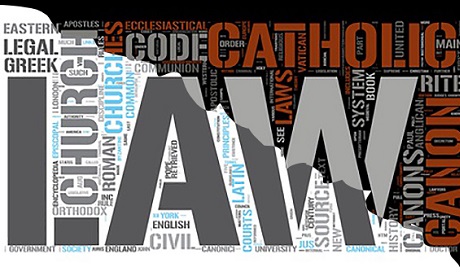Canon law changes mean the way church law is taught will also need to change, the Congregation for Catholic Education says.
Pope Francis has amended canon law so marriage annulment cases are handled more quickly, more pastorally and with less expense.
Catholic universities should therefore strengthen their canon law programmes, the Congregation says.
At the same time, bishops should send more of their priests “and, if possible, laypeople” to Catholic universities to earn canon law degrees.
The new rules, which go into effect in the 2019-2020 academic year, require all students in what is known as the “first cycle” of studies for church licenses in theology to take at least three semesters of canon law courses.
These courses include “at least one devoted exclusively to church law regarding marriage and the process of recognising the nullity of a marriage.”
The instruction also strongly encourages schools and faculties of canon law to offer courses designed for bishops, who have greater responsibility in determining the nullity of a marriage under the rules introduced by Pope Francis in 2015.
Canon law faculties are also being encouraged to offer training to parish priests and staff who work with families so they can provide basic information when they’re approached about annulments.
Archbishop Angelo Vincenzo Zani, secretary of the Congregation for Catholic Education, says the Church as a community needs its legal framework, but it cannot be “just any law, but a law that responds as a service for the good of the church”.
Source
Additional readingNews category: World.




